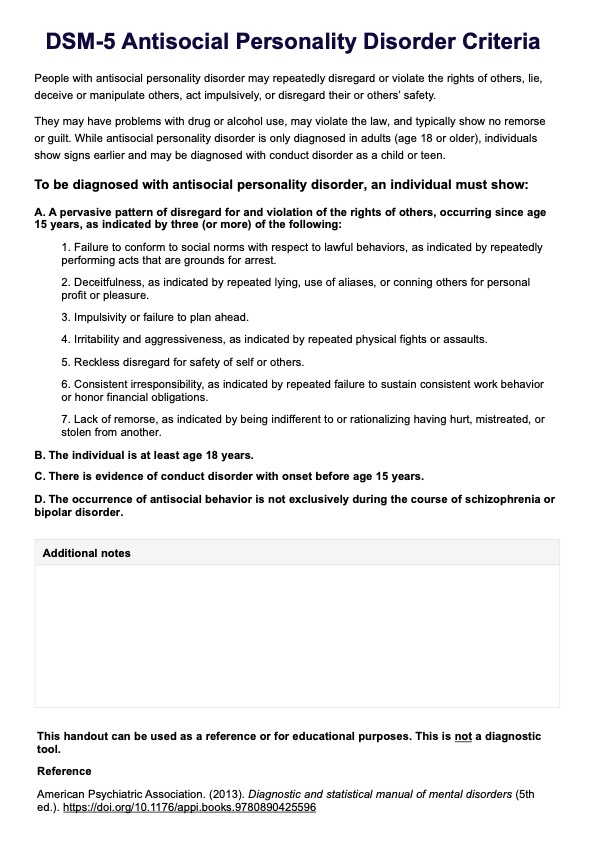Yes, in the DSM-5, antisocial personality disorder falls under the category of personality disorder.

DSM 5 Antisocial Personality Disorder
Access a reference handout on DSM-5 criteria for Antisocial Personality Disorder with our comprehensive guide.
DSM 5 Antisocial Personality Disorder Template
Commonly asked questions
Antisocial personality disorder patients often exhibit behaviors that disregard the rights of others, such as deceitfulness, impulsivity, aggression, and a lack of remorse for their actions.
Borderline personality disorder (BPD) and antisocial personality disorder (ASPD) differ in their core features. BPD is characterized by intense emotions, unstable relationships, and fear of abandonment, while ASPD is marked by a disregard for the rights of others and a lack of empathy.
EHR and practice management software
Get started for free
*No credit card required
Free
$0/usd
Unlimited clients
Telehealth
1GB of storage
Client portal text
Automated billing and online payments











